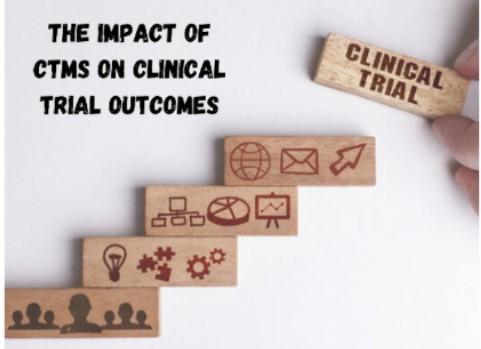Clinical trials play a vigorous role in advancing the field of medicine, providing critical insight into the effectiveness and security of new treatments and contributing to increasing medical knowledge. To meet the growing challenges of increasingly complex trials, advanced technologies are now integrated to streamline processes and boost efficiency.
As a result of the introduction of Clinical Trial Management Systems (CTMS), clinical trials have been transformed, particularly in terms of their conduct.
The Historical Shift in Clinical Trial Management
Historically, clinical trial administration faced cumbersome paperwork, slow data collection, and inefficient stakeholder communication. The introduction of CTMS marked a paradigm shift, addressing these challenges and evolving to align with technological advancements and the changing landscape of clinical research.
Key Components of CTMS
CTMS is a comprehensive solution encompassing essential components for effective trial management. Core functionalities include data management and integration, facilitating seamless collection and analysis of diverse data sources. Project and site management ensure coordinated trial activities and optimal resource allocation.
Regulatory compliance and documentation features contribute to maintaining industry standards enhancing trial results’ reliability and validity. Patient recruitment and retention strategies integrated into CTMS are crucial in ensuring trial success.
Improving Efficiency through CTMS
CTMS significantly enhances overall efficiency in clinical trials. Researchers can create well-structured study protocols by streamlining trial planning and protocol design. Real-time monitoring and reporting features provide instant access to critical data, facilitating prompt decision-making. The system’s resource optimization capabilities ensure trials stay within budgetary constraints, contributing to the financial sustainability of research.
Fostering Collaboration and Communication
Effective collaboration and communication are vital for successful clinical trials. CTMS is a centralized platform connecting stakeholders, fostering a collaborative environment for efficient data sharing and transparency. Integration with Electronic Health Records (EHRs) further enhances communication by ensuring a seamless flow of patient data between healthcare providers and trial administrators.
Impact on Patient Recruitment and Retention
Patient recruitment and retention pose ongoing challenges in clinical trials. CTMS addresses these challenges by enabling targeted patient identification through advanced algorithms and data analytics. By efficiently identifying eligible patients, CTMS accelerates the recruitment process. The system also incorporates patient engagement strategies to reduce dropout rates and ensure adherence to study protocols.
Ensuring Regulatory Compliance
Maintaining regulatory compliance is crucial in clinical trial management. CTMS ensures adherence to Good Clinical Practice (GCP) guidelines and other regulatory requirements. The system’s documentation and audit trail capabilities provide a robust framework for tracking and recording all trial activities, facilitating regulatory submissions and expediting inspection.
Successful Implementation of CTMS
Numerous pharmaceutical companies have successfully implemented CTMS, yielding positive outcomes. For example, a leading biopharmaceutical company streamlined trial management with CTMS, resulting in a 30% reduction in trial timelines. Another case involved a multinational clinical research organization that improved data accuracy and compliance by integrating CTMS into its operations.
Challenges and Future Directions
Despite its undeniable impact, challenges persist in CTMS implementation, including resistance to change and integration issues. The future of CTMS involves addressing these challenges and assuming evolving technologies such as artificial intelligence, machine learning, and blockchain to enhance efficiency, security, and transparency in clinical trial management.
Conclusion
CTMS profoundly impacts clinical trial outcomes, streamlining processes, enhancing collaboration, improving patient recruitment, and ensuring regulatory compliance. As technology evolves, so will CTMS capabilities, promising more efficient and effective clinical trials. Encouraging the continued adoption and improvement of CTMS represents a commitment to shaping the future landscape of clinical trial management to better global healthcare.


 Home
Home









